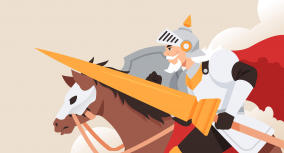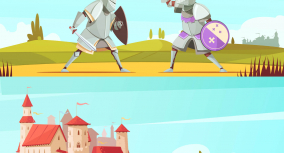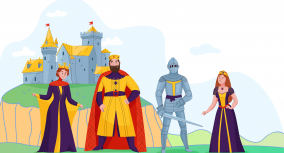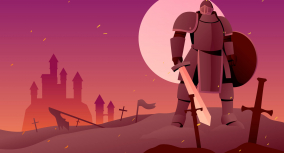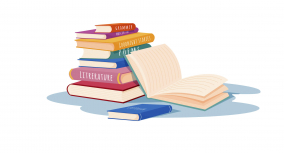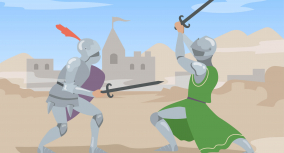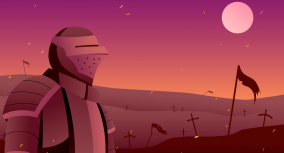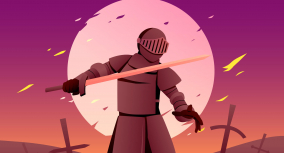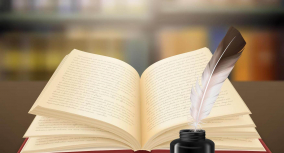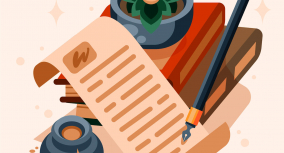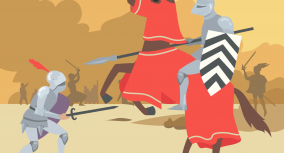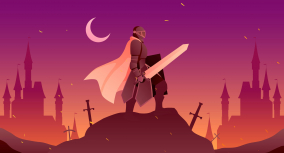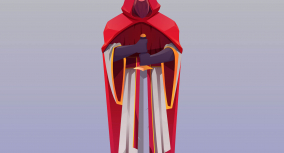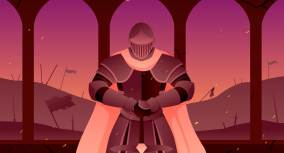One of the essential parts of understanding a literary piece is getting into its analysis. Usually, it would not include trying to find out about its background. However, in the case of La Chanson de Roland or The Song of Roland, it plays a huge role. Custom-Writing.org experts have created this short analysis section. It begins with explaining the historical context of the poem. Then, there are a few main symbols discussed that are inseparable from the themes. All of that is included in the analysis of The Song of Roland and is meant to help the students prepare for any exams they might have on this piece.
⚔️ Song of Roland Symbolism
The most important symbols in The Song of Roland are: Roland’s sword, Roland’s horn, and the gauntlet glove.
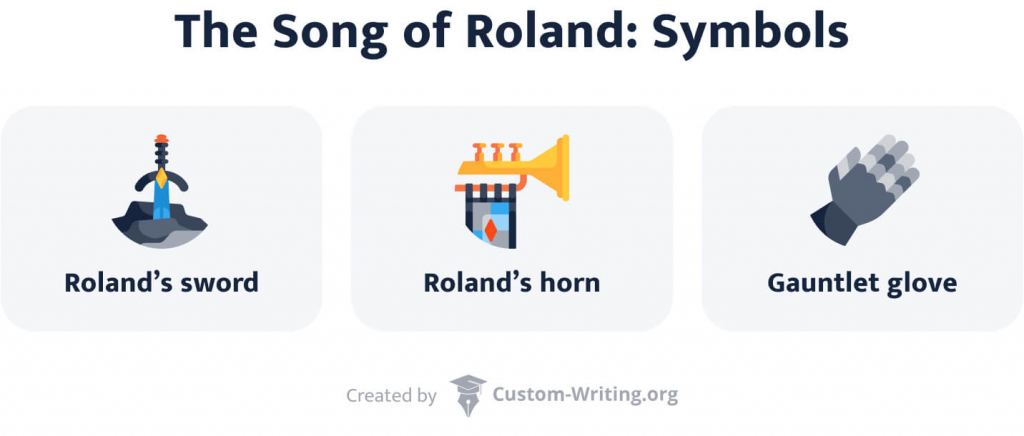
Roland’s Sword
Swords are an essential part of the poem because they serve as something more than just weapons. They reflect the character’s personalities and appear to be loyal partners for them. The knight gives a name to his weapons, and usually, at least part of the victory is assigned to it. Roland’s sword has the name Durendal, which presumably comes from the French word “to endure.”
See here my sword, that is both good and long
The Song of Roland, Turgis, Laisse LXXIV
With Durendal I’ll lay it well across.
One of the most important scenes related to this symbol is when Roland talks about Durendal before dying. The main character recalls how many battles his sword helped him win.
Saint Mary, be my guide
The Song of Roland, Roland, Laisse CLXXI
Good Durendal, unlucky is your plight!
I’ve need of you no more; spent is my pride!
It is one of the reasons why it is such a pity to leave this treasure behind for the Saracens. Moreover, it appears to be the weapon that spreads Christianity among the infidels. Roland believes that it would be dishonorable to leave Durendal there and tries to break it. However, it shows itself as a real Christian sword and stays without a scratch.
Roland’s Horn
Roland’s horn becomes the main focus during the conversation at the Pass. Since Oliver is the most reasonable knight, he suggests that Roland blows the horn to receive help from Charlemayn. However, the main character is too stubborn to admit they need it, so he refuses. It happens a few more times before he finally calls for help. Even though it is too late, it appears to be an essential message for the emperor. Not only Charlemayn detects a traitor, but he also realizes that Roland is dying.
This day Rollanz, my nephew shall be dead:
The Song of Roland, Charlemagne, Laisse CLVI
I hear his horn, with scarcely any breath.
Oliphant is the horn’s name, which indicates that it carries as much value as the swords that also get named. Everyone in the French army knew its sound when they heard it. Therefore, this symbol appears to be a carrier of important news. Besides, it serves as a weapon for Roland when he defends himself against a Saracen. After that, the horn breaks into pieces as its duty is done.
Gauntlet Glove
It appears that such a small item of clothing as a gauntlet carries a lot of power, which is reflected in the poem. Such significance is related to the historical aspect of gifting a pair of gloves to the new bishops and kings. Charlemayn, for example, keeps a glove with him at all times. When necessary, he grants it to someone as a gesture of his support.
Guenes, before me stand;
The Song of Roland, Charlemagne, Laisse XXIV
And take from me the glove, also the wand.
For you have heard, you’re chosen by the Franks.
Moreover, the king’s glove serves as a delegation of power. Everyone takes this ceremony very seriously because if something goes wrong, it is a bad sign. Therefore, when Ganelon drops the glove granted by Charlemayn, it creates a lot of concern.
Murmur the Franks: “God! What may that mean now?
The Song of Roland, Franks, Laisse XXV
By this message great loss shall come about.
At the same time, the glove is something given only temporarily. That is why Roland offers it back to God while dying. Since Charlemayn could not be there to take it, the knight provides the glove as a symbol of power to God, just as the true Christian would do.
His right-hand glove, to God he offers it
The Song of Roland, Narrator, Laisse CLXXVI
Saint Gabriel from’s hand hath taken it.
📜 Song of Roland Historical Context
Charlemayn was a real historical figure who lived in the eighth and ninth centuries. He conquered almost the whole of Europe, trying to found an empire. The poem follows the events of the Battle of Roncevaux Pass that happened in 778 AD in the mountains located between Spain and France. The battle was a real historical event, but everything else presented in the poem is just a dramatization and fiction. For instance, the ones who decided to strike the part of the army Charlemayn left there were not Saracens but Basques. They were seeking revenge after the emperor attacked their territory. Charlemayn thought that they were together with the Muslims and wanted to destroy the opposition.
All in all, the French were, in fact, defeated, but their bravery allowed the rest of the army to get on the other side of the mountains with no issues. There were a lot of details changed in it to become the main clash between Christians and Muslims in the poem. Another element that might have been real is the existence of such a knight as Roland, which is registered by Einhard. Moreover, it is suggested that The Song of Roland was a popular piece of literature during the Crusade and might even describe its events.
When Was The Song of Roland Written?
The poem describes the events happening in the 9th century. There is no specific evidence confirming the time when Song of Roland was created but much later than that. However, supposedly it was written before the beginning of the 12th century. Moreover, it is believed that this poem became the first piece of its genre.
Who Is the Author of The Song of Roland?
The author is considered to be anonymous. However, there are some hints that it might have been Turold since this name appears in the last lines of the poem. Supposedly, he was a Norman poet. His name seems to be hard to track down, but it appears in some other literary pieces.
Thank you for reading this article! If you need help with formulating a thesis for your paper on The Song of Roland, try our thesis statement generator. If you are looking for an essay idea on the play, you might want to take a look at the essay topics collection. Any questions left? Check the QA section!
🔗 References
- The Song of Roland by C. K. Scott-Moncrieff – Free Ebook
- What does the Song of Roland tell us about chivalry?
- The Song of Roland | Summary, Author & Analysis – Study.com
- The Symbolic Structure of la Chanson de Roland – JSTOR
- The Song of Roland – York University
- The Song of Roland as an Epic Poem
- The Song of Roland as a Folk Epic
- The Song of Roland. Is Roland a True Hero?
